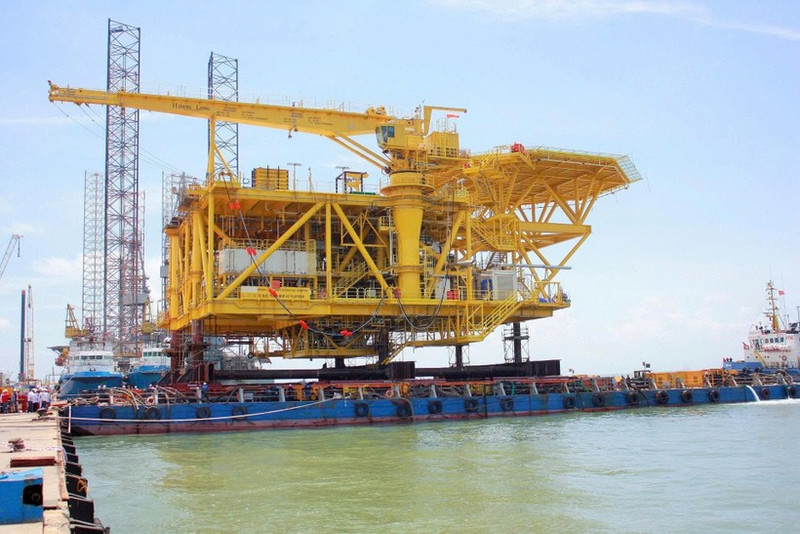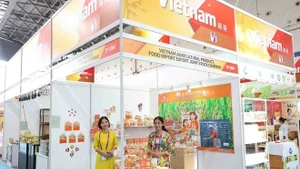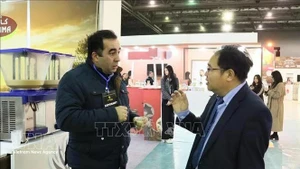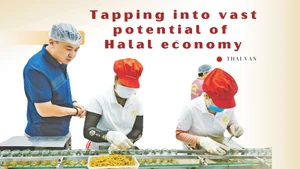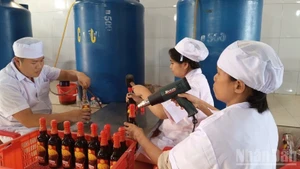Taking the design stage seriously
Phan Tu Giang, Deputy General Director of the Viet Nam National Industry-Energy Group (PVN), commented that despite playing the role of EPC General Contractor, most Vietnamese enterprises only focus on simple tasks such as construction and installation (with the lowest added value).
In the minds of many “bosses”, it seems that they have not yet determined to keep the “brain” of design. Although some have seen that crucial weakness, even sending officers and engineers to gain experience, they have not yet built a systematic strategy, the “practical” nature is still weak, so the efficiency is not high.
In the EPC project of the main energy contractor, if the “key” to design is kept, the procurement part will certainly be optimised, thereby having the opportunity to increase manufacturing capacity and increase the rate of localisation of equipment.
In addition to the “core technologies” that foreign enterprises do not allow access to, most of the remaining auxiliary technologies or drawings and equipment designs can be completely accessed and transferred by domestic enterprises if the contract has requirements and binding conditions on technology transfer. Unfortunately, in many key energy projects, binding terms to support domestic enterprises have not been set at the correct level.
According to energy experts, deep participation in the design of key equipment of energy projects in recent times has not achieved the desired results due to many reasons. Some enterprises send their personnel for training abroad, but when they return home, they have no “place to use their talents” due to unstable work sources and the bidding mechanism does not support enterprises participating in similar projects.
Management agencies need to research, learn, and apply China’s experience in implementing energy projects. For example, when bidding for coal-fired thermal power projects, China requires foreign partners to gradually transfer plant technology; after 4-5 projects, domestic enterprises can completely master the technology. On that basis, the government has strongly supported enterprises to research and create technology with their own brands.
LILAMA General Director Nguyen Van Hung said that the unit is focusing on building an innovation centre to attract high-quality human resources, ensuring sustainable development. This issue is not new, but now is the right time when the Politburo issued Resolution No.57-NQ/TW on breakthroughs in science and technology development, innovation and national digital transformation.
Along with the resolution on state-owned enterprise development about to be issued, the corporation will have enough basis to strongly promote research and development (R&D), increase the rate of localisation of equipment, and prepare to participate more deeply in key energy projects.
Removing “bottlenecks”
According to Le Van Tuan, Vice President of the Vietnam Association of Mechanical Enterprises (VAMI), for the national economy to develop stably, it is necessary to focus on the production of goods, and the mechanical engineering-manufacturing industry is the “support” of the whole economy.
However, this field seems to have been neglected for a long time, and now is the “golden time” to change thinking, form a system of solutions, mechanisms and appropriate policies to support mechanical-manufacturing enterprises, and create sources of work and markets for enterprises to compete and develop.
Accordingly, the state needs to have regulations and clear mandatory requirements on the rate of equipment localisation and technology transfer for energy projects and works. Projects using public investment capital need to separate the part of work that can be undertaken domestically for domestic bidding.
Additionally, the state has preferential policies and support on corporate income tax and land rent, not “levelling” like with other enterprises because the mechanical-manufacturing industry is a foundation industry, requiring large investment resources with long-term and low profit margins.
Currently, countries tend to invest in and form complexes, semiconductor chip manufacturing centres, and large data centres (BigData), which require large and stable power sources during operation.
Dr. Nguyen Duc Kien, former Head of the Advisory Group of the Prime Minister, said that public investment projects often have problems adjusting the total investment level, due to having to go through many procedures and processes, and the prices of raw materials and materials fluctuate continuously, as well as payment bottlenecks, etc.
“Therefore, in order for contractors to feel secure in construction, it is necessary to build a price mechanism that is close to market fluctuations and apply a price mechanism at the time of delivery. The most important thing is to control the quality of equipment and construction well and closely follow the project implementation progress,” Dr. Nguyen Duc Kien emphasised.
Construction and energy enterprises are highly expecting that Resolution No.70-NQ/TW will “untie” the mechanisms and policies, helping enterprises increase their autonomy, participate deeply in key energy projects, and meet the requirements of ensuring national energy security.
Tran Ho Bac, General Director of Viet Nam Petroleum Technical Services Corporation (PTSC), said that in addition to the efforts of enterprises themselves, the state needs to soon complete the legal framework, mechanisms, and stable and long-term policies for energy development, especially offshore wind power projects, liquified natural gas, and renewable energy, as well as build a testing mechanism for new energy projects, creating conditions for Vietnamese enterprises to pioneer in applying and perfecting the model. At the same time, develop an energy industry and technical logistics centre, take advantage of existing infrastructure to form a domestic supply chain, promote international cooperation, technology transfer, develop high-quality human resources, effectively connect businesses with research institutes and universities, etc.
Construction and energy enterprises are highly hopeful that Resolution No.70-NQ/TW will “untie” the mechanism and policies, help businesses increase their autonomy, participate deeply in key energy projects, and meet the requirements of ensuring national energy security.
The Politburo has stipulated that by 2025, it is necessary to complete the removal of institutional bottlenecks that hinder the development of the energy sector; support businesses to innovate and digitally transform; apply science and technology for rapid and sustainable development; and gradually master modern technology, including atomic energy technology, and move towards self-sufficiency in producing most energy equipment to serve domestic needs and export both technology and equipment.
